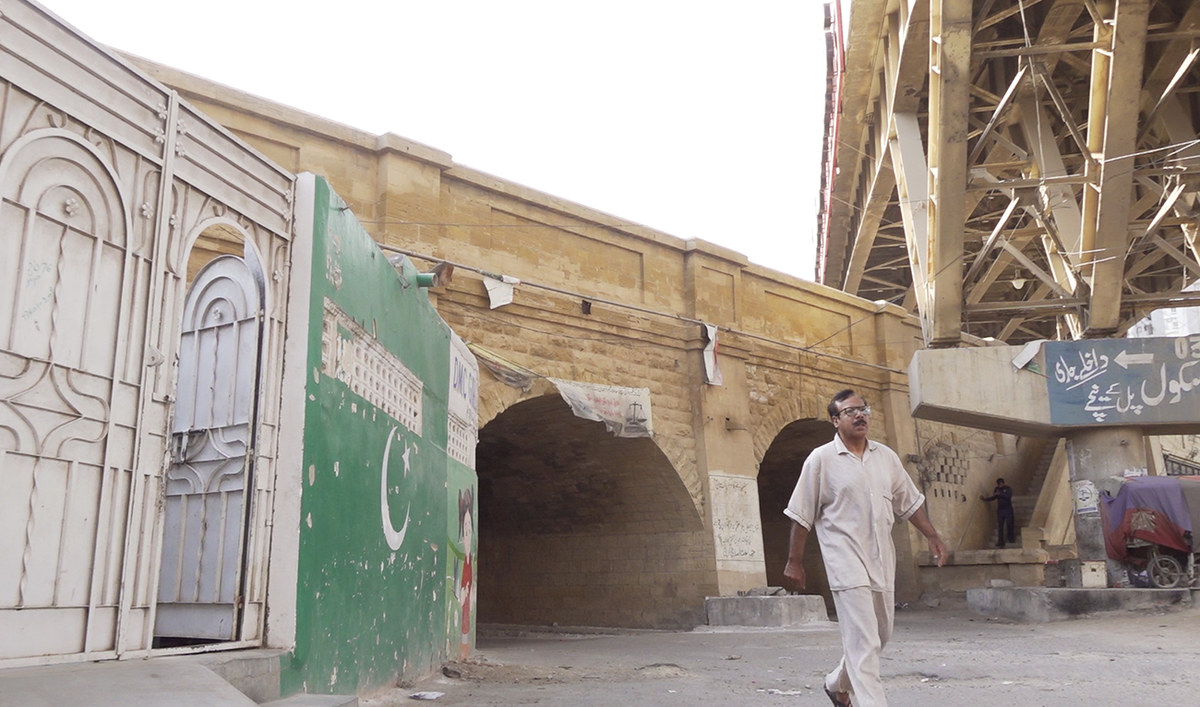KARACHI: Academic activities came to a temporary halt as a train loudly rumbled past a school built under a bridge in Pakistan’s southern port city of Karachi. After a few moments, when the noise dissipated, teachers resumed their lectures amid the sound of fast-moving traffic overhead.
Despite the unusual location of the school, its faculty members have remained committed to carrying forward the legacy of Begum Raana Liaqat Ali Khan, the wife of the country’s first prime minister, who established the facility for underprivileged children to provide them with quality education in 1948.
Back in the day, there were not many educational institutes in the newly created South Asian state that was dealing with the mass exodus of Muslim immigrants from neighboring India while struggling with a fragile economy.
The education facility under the Clifton bridge connecting downtown Karachi with upscale neighborhoods, such as the Defense Housing Authority, serves children in two shifts: The Girls’ Government Elementary School operates in the morning while the DMC Boys’ Government Primary School becomes functional in the evening.
Despite the lack of a proper building, teachers and students say they remain committed to the cause of education.
“Education is great here, regardless of whether the building is present or not,” Noor-e-Fatima, an eighth-grade student, told Arab News. “Education is more important than the building itself, so it doesn’t matter how the building looks.”

The photo taken on May 5, 2023, shows the Clifton bridge school's gate next to the bridge in Karachi, Pakistan. (AN Photo)
Monica Gill, the principal supervising the evening shift for boys, said she had been teaching at the school since 1987, though she remained so focused on providing education that she rarely thought about the facility itself.
“Our only goal is to educate children... from poor settlements in the surrounding areas,” she said.
Gill said people sometimes asked her what type of school she was teaching in. Many of them even believed it was situated at a dangerous location.
“I reply that I am committed to serving the children of our nation... even if it means teaching them on the side of the road,” she continued.
“This school was founded by Mrs. Raana Liaqat Ali Khan in 1948... To this day, all the teachers [here] are women who are dedicated to continuing the process [of educating children].”
Razia Sultana, the principal during the morning shift, maintained that the school had undergone several improvements over a period of time, though a recent construction project had led to a decline in enrollment.
“The only problem that has emerged is the construction of a wall [along the railway track] which led to a significant decrease in the number of enrolled students,” she said.
Sultana said the number dropped from over 200 to about 150 among the girls since the railways authorities built the wall last year, which considerably reduced the space available to her students.
She said she had been teaching at the facility for the last 34 years, adding that both teachers and students had become accustomed to the noise.
“The children don’t seem to notice [it] anymore,” she continued. “When we first started teaching here, it took us a year or two to get used to the noise, but now children don’t complain about the noise, either. When a train passes by, there is enormous noise. But for how long? Only about a minute.”
While the students said they were more concerned about education than the building, they pointed out it was still the government’s responsibility to improve the facility.
“I definitely want the government to pay attention so [the school] looks good, and more people enroll their children here,” young Fatima told Arab News. “I want the government to take notice... because nobody knows this is also a school.”















